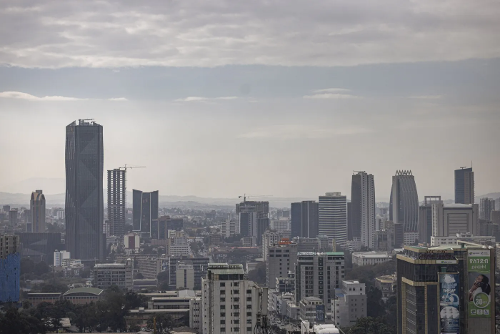Ethiopia to Issue $7.4B in Bonds to Restructure State Debt

TLDR
- Ethiopia plans to issue 900 billion birr in 10-year government bonds to repay debts owed by state-owned enterprises, primarily to the Commercial Bank of Ethiopia (CBE).
- The bond interest rates for the debt restructuring will be determined by Ethiopia's finance ministry, central bank, and CBE.
- State enterprises like Ethiopia Electric Power and Ethiopian Sugar Corp. collectively borrowed 399 billion birr for projects, including the Grand Ethiopian Renaissance Dam, with privatization initiatives now being considered.
Ethiopia plans to issue 900 billion birr ($7.4 billion) in 10-year government bonds to settle debts owed by state-owned enterprises that have constrained the country’s largest bank, Commercial Bank of Ethiopia (CBE).
The proceeds will primarily repay 846 billion birr in loans issued by CBE, with the remaining amount designated to strengthen the lender’s capital base. The bond interest rates will be set by Ethiopia’s finance ministry, central bank, and CBE, according to a decree presented to parliament.
The debt restructuring comes as Ethiopia reorganizes public finances after a default on sovereign debt last year. State enterprises, including Ethiopia Electric Power, Ethiopian Sugar Corp., Ethio Engineering Group, and Ethiopia Railway Corp., collectively borrowed 399 billion birr. Funds were directed towards projects like the Grand Ethiopian Renaissance Dam, with privatization of some projects now on the agenda.
You can follow Daba’s reporting on Africa on WhatsApp. Sign up here
Key Takeaways
Ethiopia’s bond issuance marks a critical step in addressing debt burdens that have strained its economy and public finances. While the move reduces CBE’s debt load, overall debt as a percentage of GDP is projected to rise to 43.6% this fiscal year due to new foreign loans and a $3.6 billion IMF program. Ethiopia’s public finances have been impacted by multiple crises, including a civil war and global disruptions from the Covid-19 pandemic and Russia’s invasion of Ukraine. This debt restructuring, alongside plans to privatize state-owned assets, represents Ethiopia’s attempt to stabilize its economy, albeit with a growing reliance on external support.

Next Frontier
Stay up to date on major news and events in African markets. Delivered weekly.
Pulse54
UDeep-dives into what’s old and new in Africa’s investment landscape. Delivered twice monthly.
Events
Sign up to stay informed about our regular webinars, product launches, and exhibitions.




